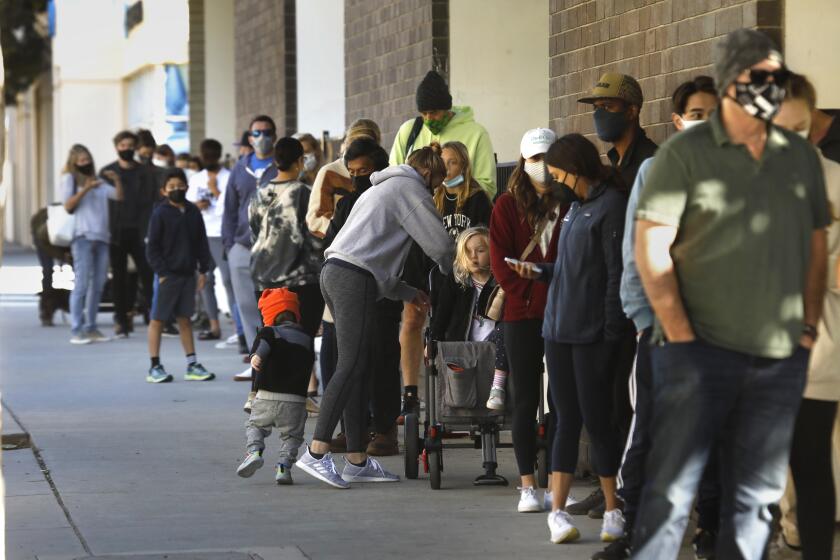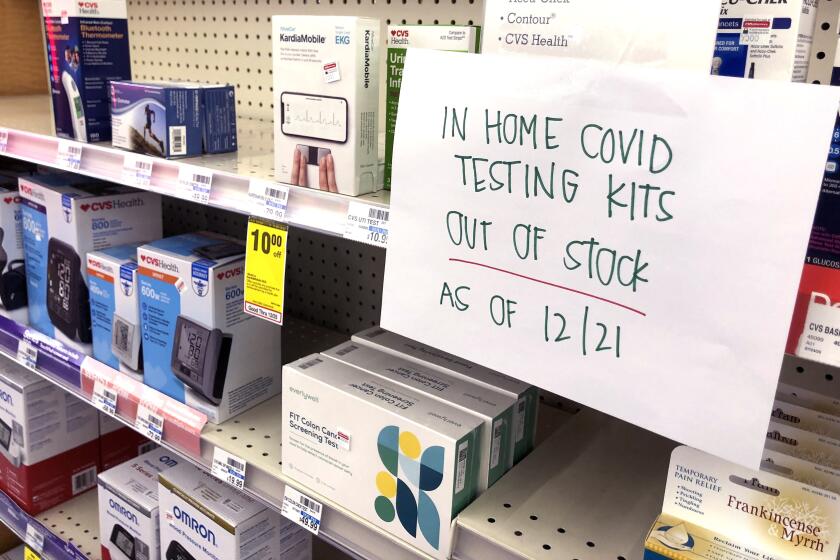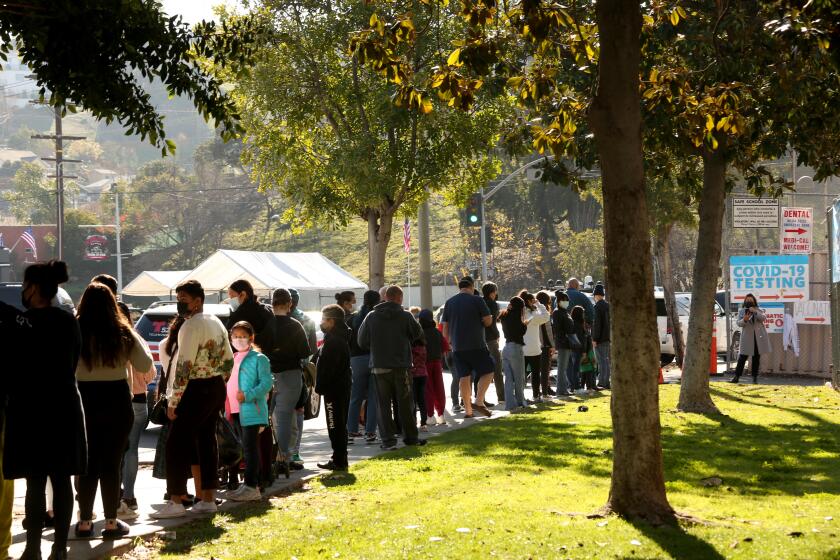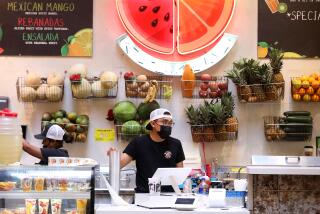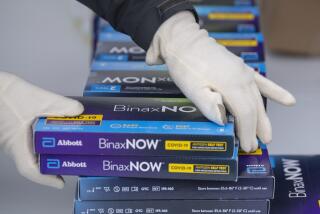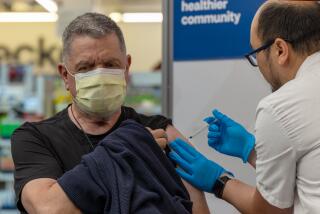Scammers are preying on people desperate for COVID-19 tests. How to protect yourself
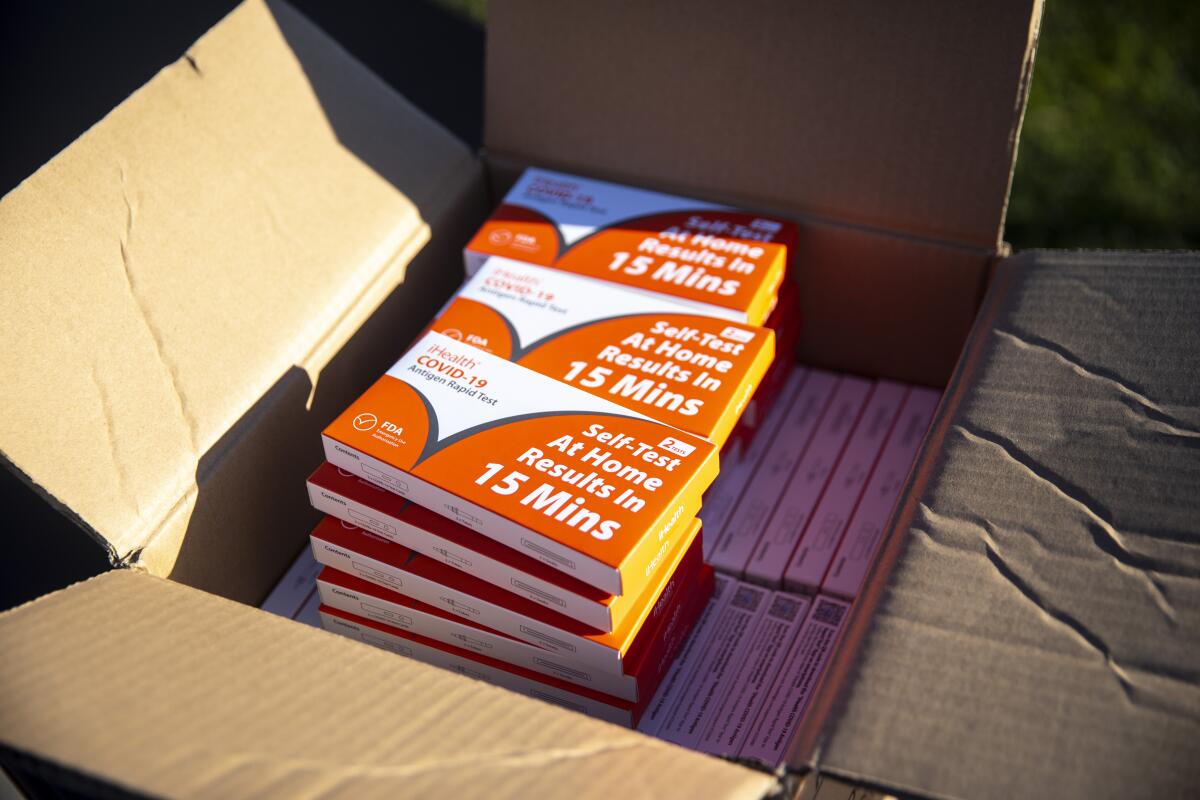
- Share via
Demand for COVID-19 tests has never been as great as it is now, as the Omicron variant spreads through California with unprecedented speed.
At-home and professional testing availability has come under intense strain, with test-seekers waiting hours in long lines, traveling great distances or paying well above asking price for an at-home test.
Officials are warning of scammers trying to take advantage of the situation.
Here is what we know and some tips to protect yourself.
The motion calls for county departments to develop a strategy to address fraudulent coronavirus test sites and at-home kits amid high demand for tests.
What are the scams?
The U.S. Department of Health and Human Services last week issued an alert about coronavirus testing and vaccination scams.
“Scammers are selling fake and unauthorized at-home COVID-19 test kits in exchange for your personal or medical information,” the department wrote on its website. “Make sure to purchase FDA-approved COVID-19 test kits from legitimate providers.”
The federal agency also noted schemes targeting Medicare beneficiaries and retirement communities, offering fake tests in exchange for personal details, and in some cases, drawing blood and billing federal healthcare services.
Some suspicious street-corner operations have been reported in Los Angeles as well.
A surge of coronavirus cases tied to the Omicron variant ahead of Christmas weekend has prompted a crush of demand for over-the-counter antigen tests.
What are officials doing?
The Los Angeles County Board of Supervisors unanimously approved a motion Tuesday to address fraudulent coronavirus test sites and at-home kits as a surge in cases driven by the Omicron variant has many people scrambling to find testing appointments and equipment.
The motion calls for the county departments of health, consumer affairs and public safety to examine the risks of fraudulent tests and develop a communications and crackdown strategy in 30 days.
“In the past month, demand for COVID-19 testing in Los Angeles County and across the country has skyrocketed, drastically outpacing supply,” according to the motion, introduced by Supervisor Kathryn Barger. “Unfortunately, this has led to some taking advantage of the situation by distributing and setting up fraudulent COVID-19 tests and testing sites.”
The L.A. County Department of Consumer and Business Affairs is “in the beginning stages” of investigating reports of price gouging on tests, said Keven Chavez, a department spokesman.
Price gouging can be reported at stoppricegouging.dcba.lacounty.gov or here.
Last week, Gov. Gavin Newsom issued an order prohibiting price gouging on at-home kits.
According to a statement from the California Department of Justice, the order protects Californians “by generally prohibiting the sale of at-home COVID-19 test kits at a price that exceeds, by more than 10%, the price the seller charged” on Dec. 1, 2021. Sellers who have not previously sold at-home COVID-19 test kits may not sell them for a price greater than 50% of what the seller paid, the order states.
County health officials say the initiative will allow for expanded testing after pausing a mail-order at-home program last week.
What are some tips?
Here is some information from federal regulators:
- Be careful! Scammers are selling fake and unauthorized at-home COVID-19 test kits in exchange for your personal or medical information. Make sure to purchase FDA approved COVID-19 test kits from legitimate providers.
- Do not buy fake vaccination cards, do not make your own vaccination cards, and do not fill-in blank vaccination record cards with false information.
- As volunteers go door-to-door to inform communities across the country about COVID-19 vaccinations, be sure to protect yourself from criminals who are seeking to commit fraud. Do not provide personal, medical, or financial details to anyone in exchange for vaccination information, and obtain vaccinations from trusted providers.
- Offers to purchase COVID-19 vaccination cards are scams. Valid proof of COVID-19 vaccination can be provided to individuals only by legitimate providers administering vaccinations.
- Be cautious of COVID-19 survey scams. Do not give your personal, medical or financial information to anyone claiming to offer money or gifts in exchange for your participation in a COVID-19 vaccination survey.
- Be mindful of how you dispose of COVID-19 materials such as syringes, vials, vial container boxes, vaccination record cards, and shipment or tracking records. Improper disposal of these items could be used by bad actors to commit fraud.
- Photos of COVID-19 vaccination cards should not be shared on social media. Posting content that includes your date of birth, healthcare details or other personally identifiable information can be used to steal your identity.
- Beneficiaries should be cautious of unsolicited requests for their personal, medical, and financial information. Medicare will not call beneficiaries to offer COVID-19 related products, services, or benefit review.
- Be suspicious of any unexpected calls or visitors offering COVID-19 tests or supplies. If you receive a suspicious call, hang up immediately.
- Do not respond to, or open hyperlinks in, text messages about COVID-19 from unknown individuals.
- Ignore offers or advertisements for COVID-19 testing or treatments on social media sites. If you make an appointment for a COVID-19 test online, make sure the location is an official testing site.
- Do not give your personal or financial information to anyone claiming to offer HHS grants related to COVID-19.
- Be aware of scammers pretending to be COVID-19 contact tracers. Legitimate contact tracers will never ask for your Medicare number, financial information, or attempt to set up a COVID-19 test for you and collect payment information for the test.
- If you suspect COVID-19 healthcare fraud, report it immediately online or call (800) 447-8477.
More to Read
Sign up for Essential California
The most important California stories and recommendations in your inbox every morning.
You may occasionally receive promotional content from the Los Angeles Times.
